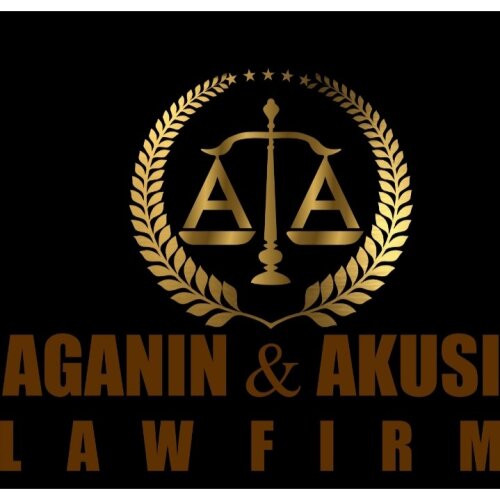Best Private Equity Lawyers in Port Harcourt
Share your needs with us, get contacted by law firms.
Free. Takes 2 min.
List of the best lawyers in Port Harcourt, Nigeria
About Private Equity Law in Port Harcourt, Nigeria
Private equity in Port Harcourt, Nigeria involves investment made into private companies or public companies that are delisting with the aim to restructure, grow, or influence the management and direction of that business. Investors pool their funds to acquire stakes in companies, usually targeting growth potential and operational improvements. Port Harcourt, as the commercial capital of Rivers State and a hub for oil and gas businesses, has seen a surge in private equity interest, especially in sectors like energy, real estate, infrastructure, technology, and services. Private equity transactions here are typically influenced by Nigerian statutory laws, local regulations, and international best practices.
Why You May Need a Lawyer
There are several scenarios where legal help is invaluable in private equity transactions in Port Harcourt. These include:
- Structuring a private equity fund or partnership in compliance with Nigerian laws
- Negotiating and drafting investment agreements, term sheets, or shareholders’ agreements
- Conducting due diligence on target companies or investors
- Ensuring compliance with regulatory requirements from bodies like the Securities and Exchange Commission (SEC) or the Corporate Affairs Commission (CAC)
- Advising on tax consequences and risk management strategies
- Resolving disputes between investors, sponsors, or portfolio companies
- Managing exit strategies including buyouts, sales, or Initial Public Offerings (IPOs)
A lawyer ensures your interests are protected, helps you avoid compliance pitfalls, and navigates the complexities of both local and national regulations.
Local Laws Overview
Private equity activity in Port Harcourt is governed by a mixture of Nigerian federal laws, Rivers State regulations, and commercial practices. Key legal aspects include:
- Companies and Allied Matters Act (CAMA): Governs incorporation, management, and operation of companies in Nigeria, including those receiving private equity.
- Investment and Securities Act: Regulates fundraising, investor protection, and market conduct, enforced by the Securities and Exchange Commission.
- Federal Competition and Consumer Protection Act: Oversees mergers, acquisitions, and competition law issues relevant in private equity transactions.
- Nigerian Investment Promotion Commission (NIPC) Act: Addresses foreign participation in investment and relevant approvals.
- Tax legislation: Sets frameworks for capital gains tax, withholding tax, stamp duties, and other tax considerations for private equity investors.
- Contracts and dispute resolution: Most agreements are enforceable if properly drafted and executed, with dispute resolution commonly via arbitration or the Nigerian courts.
Local Port Harcourt customs or special economic zones may introduce further requirements, especially for real estate transactions or projects in regulated sectors like oil and gas.
Frequently Asked Questions
What is private equity?
Private equity refers to investments made in private companies, typically by pooled funds from institutional or accredited investors, to generate returns through company growth, restructuring, or eventual sale.
How do I start a private equity investment in Port Harcourt?
The process includes identifying a target company, conducting due diligence, negotiating terms, and executing investment agreements. Legal guidance is important to comply with local laws and ensure the deal structure is sound.
Are there restrictions on foreign investors in private equity?
Yes, foreign investors must comply with the Nigerian Investment Promotion Commission regulations. Certain sectors may have restrictions or require special licenses. It is important to seek legal advice to navigate these rules.
What are the regulatory bodies I need to be aware of?
Key regulatory bodies include the Securities and Exchange Commission, the Corporate Affairs Commission, the Federal Inland Revenue Service, and the Nigerian Investment Promotion Commission.
What are common legal risks in private equity investments?
Common risks include poor due diligence, regulatory non-compliance, unenforceable contracts, tax exposure, and shareholder disputes. Legal advice helps mitigate these risks.
How are disputes typically resolved?
Disputes are often resolved through arbitration, mediation, or litigation in Nigerian courts. Many investment agreements include clauses mandating arbitration to ensure swift resolution.
How can I exit an investment in a private company?
Typical exit strategies include selling your shares to other investors, a trade sale, a buyback by the company, or through an Initial Public Offering (IPO). Each option has legal and tax implications.
Do private equity firms need to register or obtain licenses?
Depending on their structure and activities, private equity funds or firms may need registration with the Securities and Exchange Commission or other agencies. Legal advice will help clarify which licensing obligations apply.
Are there taxes on private equity investments?
Yes, taxes such as capital gains tax, withholding tax, and stamp duties may apply to private equity transactions. Early engagement with a legal and tax advisor is recommended to understand your obligations.
Can I structure a private equity deal to protect minority rights?
Yes, minority protection mechanisms such as tag-along rights, information rights, and board representation can be built into investment agreements. Legal drafting is crucial for enforceability.
Additional Resources
Individuals or entities seeking further support can find valuable information and oversight from the following organizations:
- Securities and Exchange Commission (SEC) Nigeria
- Corporate Affairs Commission (CAC)
- Nigerian Investment Promotion Commission (NIPC)
- Federal Inland Revenue Service (FIRS)
- National Office for Technology Acquisition and Promotion (NOTAP) for technology or IP-related investments
- Rivers State Ministry of Commerce and Industry for regional permits and compliance
- Nigerian Bar Association (Port Harcourt Branch) for finding qualified legal practitioners
Next Steps
If you are considering or already involved in a private equity transaction in Port Harcourt:
- Clarify your investment goals and gather details about the target business or fund.
- Consult a qualified private equity lawyer with experience in the Rivers State jurisdiction.
- Request a legal opinion on the structure, risks, and regulatory requirements of your intended investment.
- Ensure that all dealings and agreements are documented, reviewed, and compliant with local and national laws.
- Engage in thorough due diligence and utilize the services of accountants, valuers, and other professionals as recommended by your lawyer.
- Plan your exit strategy with legal guidance to avoid future disputes or losses.
Seeking early legal advice can make your private equity investments in Port Harcourt more secure, compliant, and profitable.
Lawzana helps you find the best lawyers and law firms in Port Harcourt through a curated and pre-screened list of qualified legal professionals. Our platform offers rankings and detailed profiles of attorneys and law firms, allowing you to compare based on practice areas, including Private Equity, experience, and client feedback.
Each profile includes a description of the firm's areas of practice, client reviews, team members and partners, year of establishment, spoken languages, office locations, contact information, social media presence, and any published articles or resources. Most firms on our platform speak English and are experienced in both local and international legal matters.
Get a quote from top-rated law firms in Port Harcourt, Nigeria — quickly, securely, and without unnecessary hassle.
Disclaimer:
The information provided on this page is for general informational purposes only and does not constitute legal advice. While we strive to ensure the accuracy and relevance of the content, legal information may change over time, and interpretations of the law can vary. You should always consult with a qualified legal professional for advice specific to your situation.
We disclaim all liability for actions taken or not taken based on the content of this page. If you believe any information is incorrect or outdated, please contact us, and we will review and update it where appropriate.

















